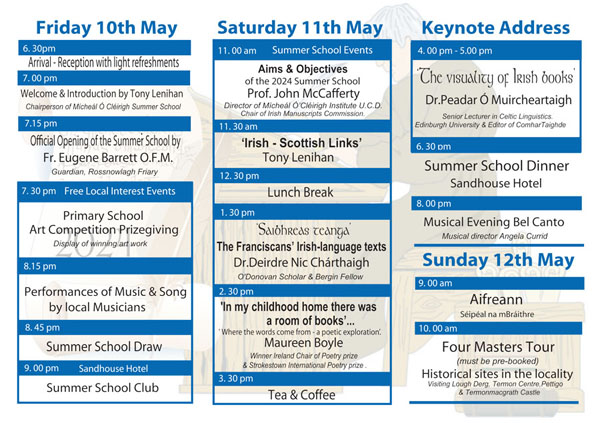
The 2024 Mícheál Ó Cléirigh Summer School was held over the weekend of Friday 10th to Sunday 12th May. The theme of the weekend was ‘Words, Language and Lore/ Focail, Teanga agus Seanchas’ and it examined how words and language collided in Mícheál Ó Cléirigh’s Ireland. We also celebrated our tenth Summer School and had a very interesting, exciting and informative weekend.
Below are the sponsors of the 2024 Mícheál Uí Cleirigh Summer School

See below the programme of events.
To learn more about the 2024 Mícheál Ó Cléirigh Summer School go to the Home Page at: Home – Mícheál Ó Cléirigh Summer School (mocleirigh.ie)
